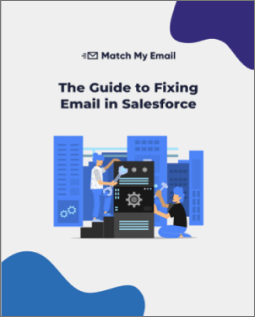Open-ended questions in sales, which aim to get more information from prospects, do not have simple ‘yes’ or ‘no’ answers. Instead, they give prospects the opportunity to expand on their challenges, goals, and thoughts, which allows you to understand a problem from their perspective. And when you understand what your prospects struggle with, you’ll know how to position your solution.
In this post, we’ll look at some of the best open-ended questions you can ask to ensure that you turn more prospects into paying customers.
Why Ask Open-Ended Questions in Sales?
Before looking at the best open-ended questions you can ask, let’s first look at why you should ask them when dealing with prospects. Here, there are generally three main benefits you’ll get:
Open-Ended Questions Are More Engaging
When asking open-ended questions, you’ll show prospects that you’re genuinely interested in their businesses, their challenges, and how you can help them. Also, open-ended questions encourage your leads to talk about the things that really matter to them and that they find interesting.
In both instances, your conversations will be more engaging, and you’ll build rapport with your prospects. In other words, when asking open-ended questions, you’ll have a conversation with your prospects instead of making sales pitches. This makes it easier for them to trust you and share their pain points. Once you know what their challenges are, it’s easier to offer solutions and close the sale.

Open-Ended Questions Help You Build Trust
Flowing from the above, when asking open-ended questions, you’ll show your prospects that you care about how they feel, their thoughts, and their opinions. In simpler terms, you’ll show them that you care about what they have to say.
The effect of this is that your prospects will feel as if they can tell you anything, from the good to the bad. Ultimately, this places you in the best position to learn everything you need to close the sale.
Open-Ended Questions Help You Learn about a Prospect’s Challenges
As mentioned earlier, when you ask open-ended questions and build rapport and trust, you’ll get more information from your prospects. This then allows you to build a complete understanding of your prospects’ challenges.
With this understanding, you’ll be able to offer the right solutions and tailor your pitch in a way that speaks to their unique situation. With close-ended questions, you’re limited to what you believe the prospect should care about. This way, you hear it straight from them.
Often, you’ll realize that a prospect has an additional pain point, which will broaden your perspective and open up new opportunities for up-sells and cross-sells.
The Best Open-Ended Questions in Sales
Now, it’s time we get to the most important part of this post – looking at the best open-ended questions you can ask in sales to ensure that you and your team close more sales and generate more revenue.
Rapport-Building Questions
Making more sales is all about nurturing valuable relationships with your customers. And these relationships start by building rapport with them. Here are some questions you can consider to do this.
Examples:
- How is your business going these days? Have there been any noteworthy changes since we last spoke / met?
- I know your basic background, but I’d like to know more about you and your company. Could you tell me more?
- What will make today’s meeting worth your while?
- What motivated you to set up this meeting / take my call today?
- What is your most important priority?
- What would you like to see improved?
- What changes would you like to make to bring about improvements?
- What concerns do you have about making these changes?
Discovery Questions
Once you’ve built rapport, you should find out what challenges your prospect faces. Ultimately, understanding your prospects’ pain points is the key to offering the right solutions.
Examples:
- What’s your current strategy for reaching your goals?
- What’s your top priority? Why?
- What do you think is preventing you from reaching your goals?
- What parts of your strategy have been working well? What parts haven’t?
- What measures have you implemented or changes have you made to address any of the challenges you’re facing?
- What is wrong with the current system/tools/products you’re using?
- If not limited by time or money, what changes would you make today that could help you reach your goals?
- Where do you see your company in five to ten years?
Qualifying Questions
Once you know what your prospects’ pain points are, you should determine if your products or services are a good fit to eliminate these pain points. Here, you’ll ask relevant qualifying questions.
Examples:
- When do you think you’ll consider or implement products/solutions to solve this challenge?
- How soon are you looking to get started with implementing the solution?
- What’s your proposed budget for the proposed solution or product?
- How does your decision-making process work when you invest in new products or services?
- Who else should be involved in the negotiation or decision-making process?
- How do we move forward after today?

Questions to Address Objections
Inevitably, you’re going to face some objections when offering your product or service as a solution to a prospect’s issues. Luckily, by asking the right questions, you can get more information about these objections and address them effectively.
Examples:
- What do you think of our solution so far?
- How would you describe your level of satisfaction with your current solution?
- What concerns do you have so far?
- What else would you like to talk about? Are there any specific concerns you’d like me to address?
- What would stop you from making a decision today?
- What other aspects would you like to discuss today?
Benefit-Driven Questions
In learning more about your prospects’ challenges, benefit-driven questions can show you what benefits of a particular product or service are most important. In turn, this can inform what aspect of your offering you should highlight to close the deal.
Examples:
- How important is solving this problem to you?
- If you fail to solve this problem, how will it impact your business in the future?
- How important is this feature in your business or specific industry?
- How much time do you and your team spend on performing this task?
- What difference would it make to your business if you and your team had an extra 60 minutes per day?
- How would making the changes we talked about affect your revenue?
New Reality Questions
By asking questions about a prospect’s new reality once their problems are solved, you’ll help them visualize what they can achieve. New reality questions are extremely powerful in sales, so make sure you add them to your workflow!
Examples:
- How do you think making the changes we discussed impacts your day-to-day business?
- What does success look like for you if you implement these changes?
- If you work with us, what differences do you expect in your business’s processes?
- If you think about your business in a few years’ time, what changes would you like to see compared to today?
- If you could go back in time a few years, what changes would you make to your business?
- What would you like to achieve by implementing the changes we’ve discussed?
Clarifying Questions
Obviously, there will be instances when you won’t have enough information on a particular aspect. Here, clarifying questions are invaluable in helping you obtain enough information to properly assess their needs and offer a solution.
Examples:
- Can you help me understand how that works by telling me more about the process?
- Can you give me more information about that?
- What does that mean exactly?
- Can you give me an example of how that works on a daily basis?
- How did that happen?
- How did that impact your business?
Closing Questions
Once you’ve learned more about your prospects’ pain points and offered solutions, there are some questions that can help you turn your prospects into paying customers.
Examples:
- What questions do you still have that I can answer?
- What other products/services are you comparing us against?
- What else can I do to help you make this decision?
- If we finalize this deal, what would it mean for your business?
- When can we get started?
After-Closing Questions
Finally, once you’ve closed a deal, the relationship with your new customer is only starting. So, it might be worth your while to learn more about what you can do to nurture this relationship.
Examples:
- How can we help you get started with our product/service??
- What support can we give to ensure that your implementation is successful??
- What caused you to reach out to us??
- What made you choose our product/service??
- What questions do you have about our onboarding process??
Start Asking the Right Questions Now
Often, closing a deal is more about asking the right questions than saying the right things. While you should have a successful sales script, make sure you integrate plenty of open-ended questions and room for improvisation. You’ll uncover new opportunities and deepen your relationships!



